Stage 3: Implant Fixture Procedure
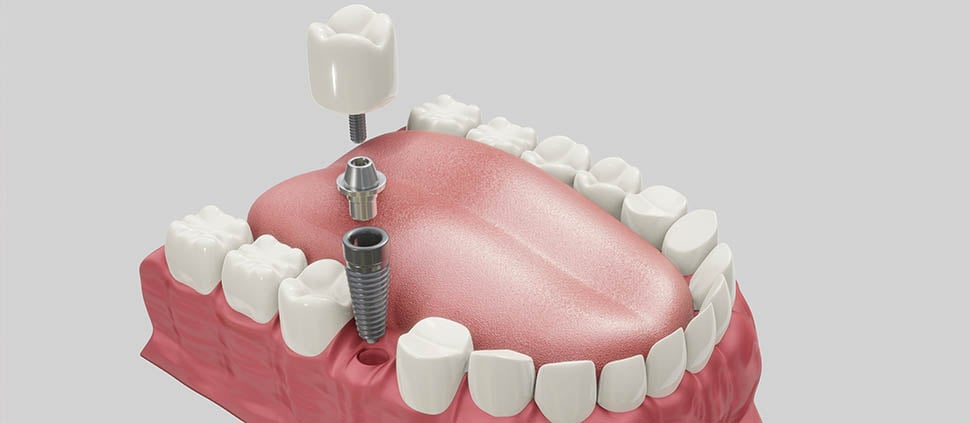
Before your implant is placed, the relevant implant sites will be completely numbed with a local anaesthetic so that you feel no pain during the whole procedure. However, you may expect to feel some slight pressure or vibration.
Depending on your concerns and agreed individualised treatment plan, you may be sedated before the surgery in addition to the local anaesthetic administered or given general anaesthesia.
- Tooth Extraction & Implant Fixture Placement
If the tooth remains in its socket, the relevant tooth or teeth will have to be extracted first. Your dentist will then place the implant fixture into your jaw bone.
Stage 4: Healing & Implant Fixture Fusing with Jawbone
Your body requires a few days to accept the implant. During this time, it is completely normal to experience discomfort, pain or minor swelling. Your dentist will provide you with pain-relieving medication or recommend some that be purchased off-the-counter.
After which, you will need to come down for a second appointment with the dentist to assess the healing process.
Novel jawbone grows around the newly introduced implant fixture, permanently integrating the fixture with the jaw and gums. This process is known as osseointegration.
An implant fixture typically takes 3 to 6 months to fuse and become a part of your jaw bone.
While healing takes place and a permanent prosthesis is being made, a temporary prosthesis will be provided.
Stage 5: Adding Prosthesis
Once the implant fixture integration is deemed successful, the final implant prosthesis (crown), implant-supported bridge or denture, will be constructed and fitted.
It will be customised to fit the shape of your mouth and surrounding teeth, allowing it to look and feel like one of your natural teeth.
Stage 6: Post-Procedure Care
Once your dental implants are in place, you would still be required to visit your dentist every 6 months. On peak of your routine cleaning and checks, your dentist will also check that your dental implants have integrated well and continue to serve its function well.
.png?width=2223&height=447&name=Background%20(4).png)

.svg)
.svg)
.svg)
.svg)

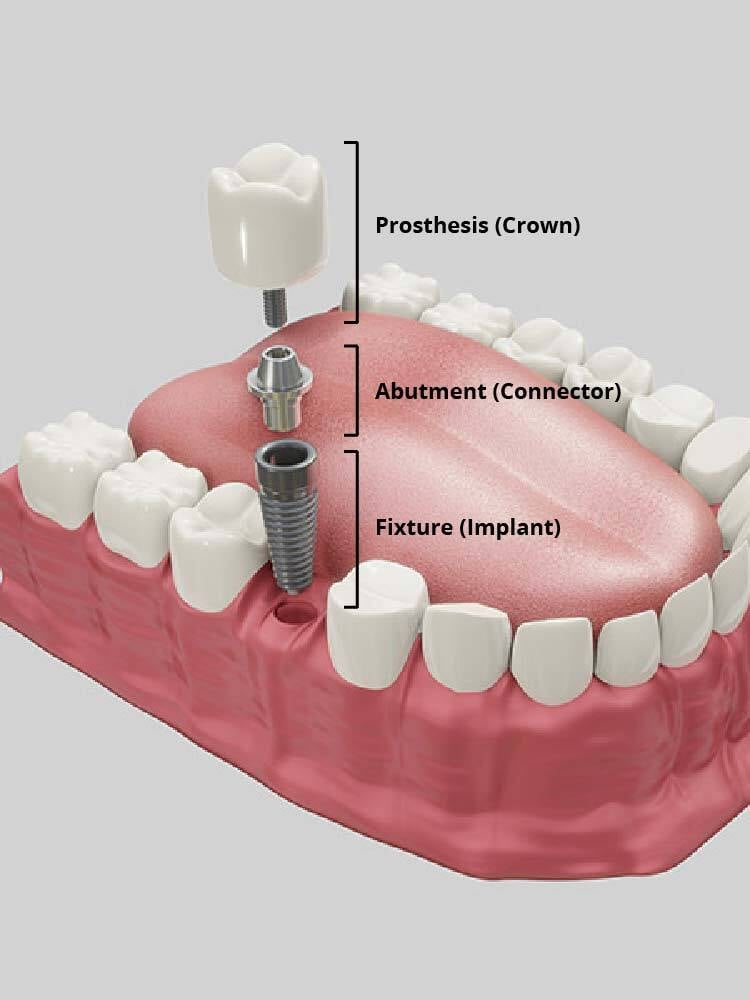
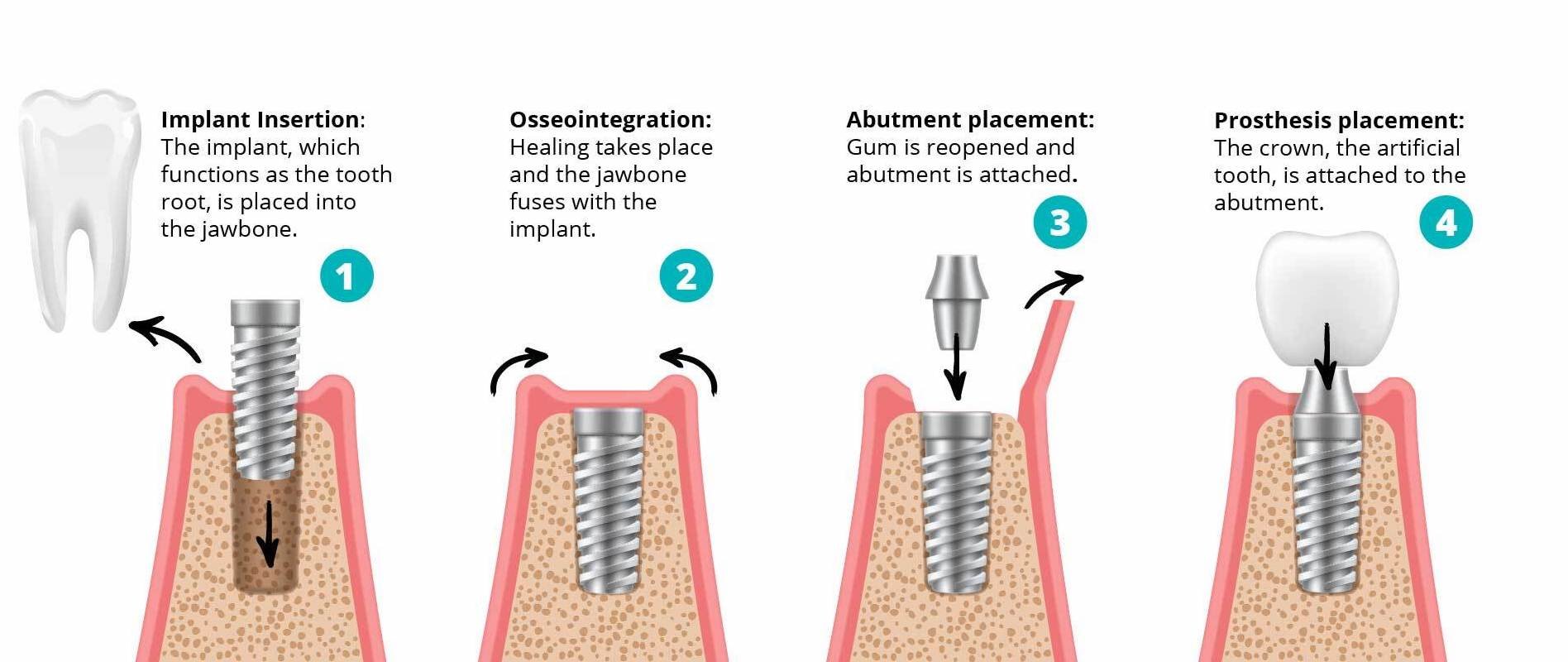





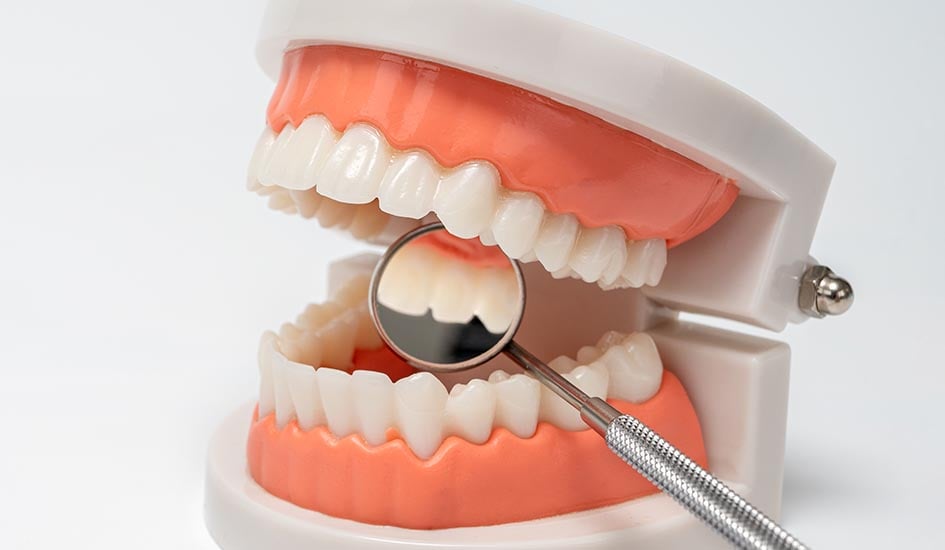
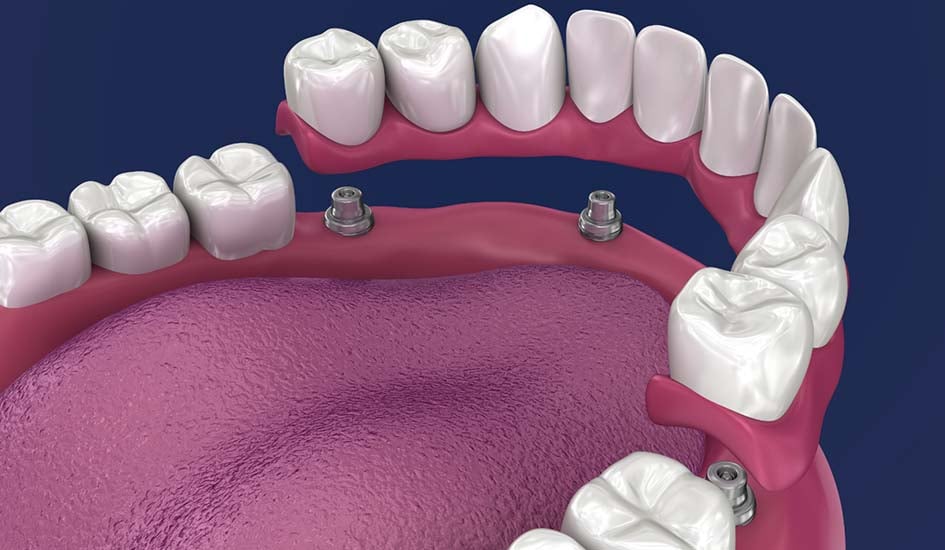
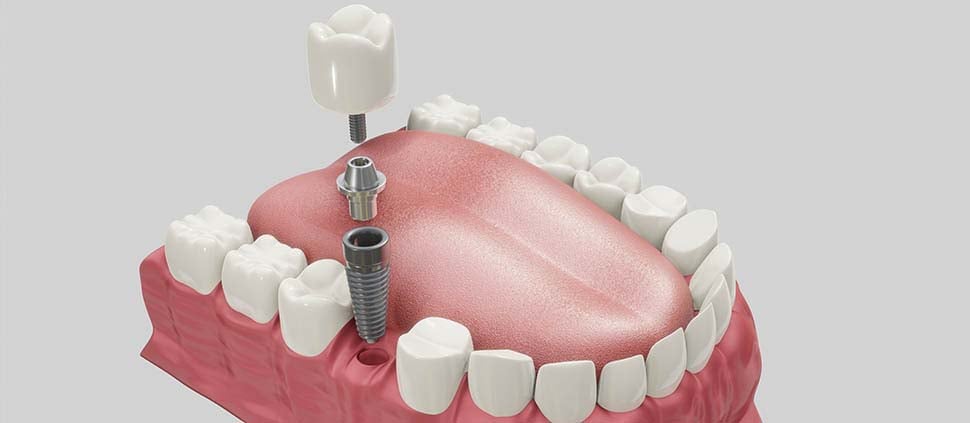
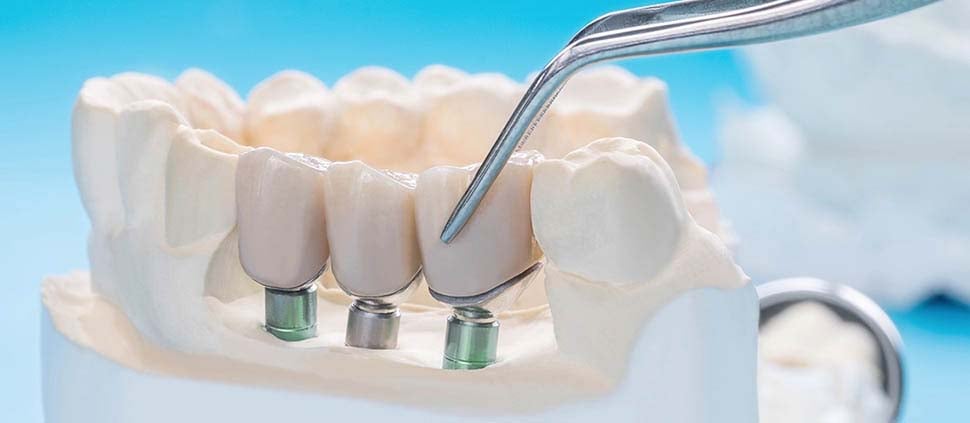
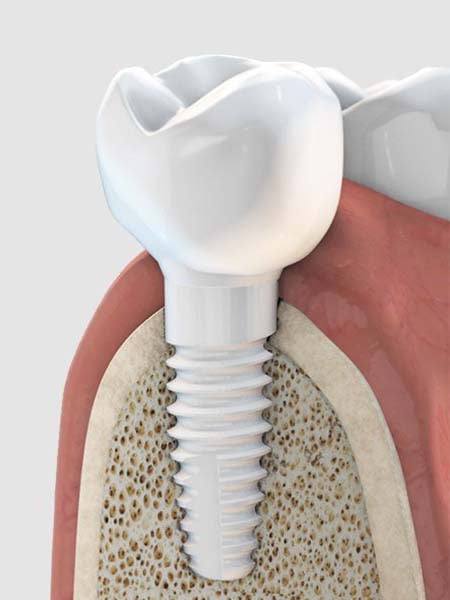
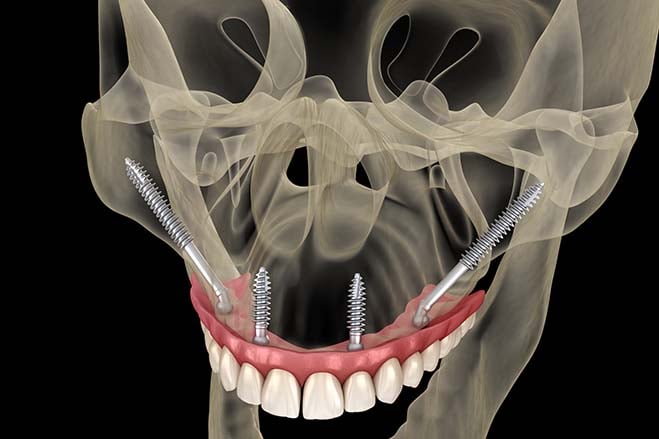
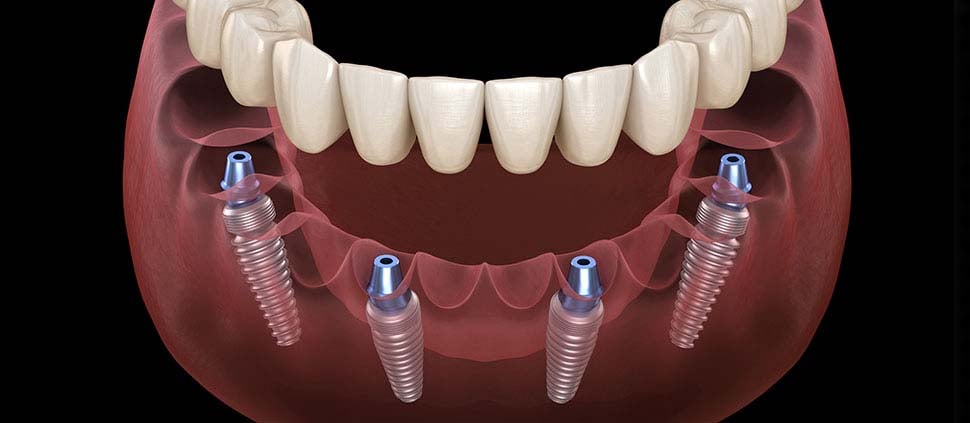


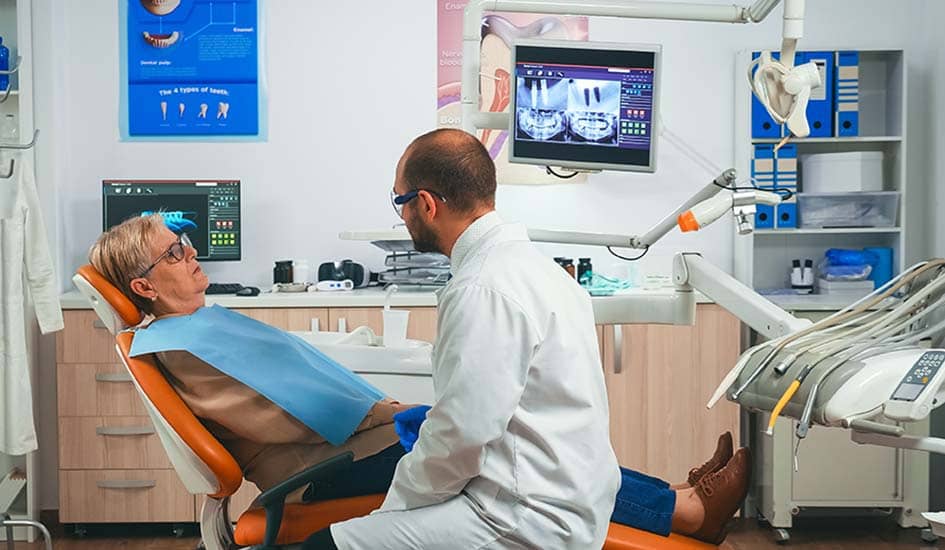
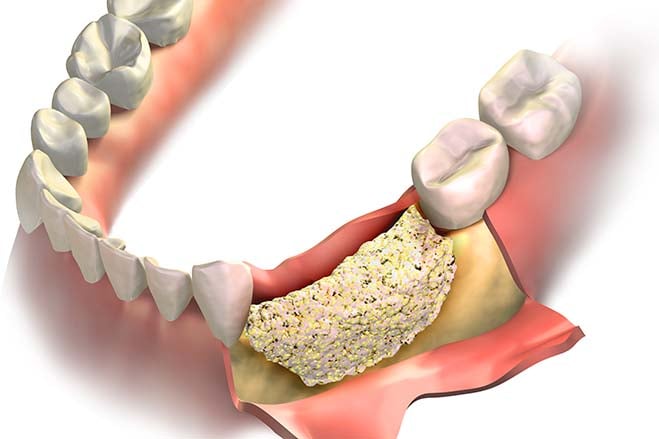













.png)

.png)











